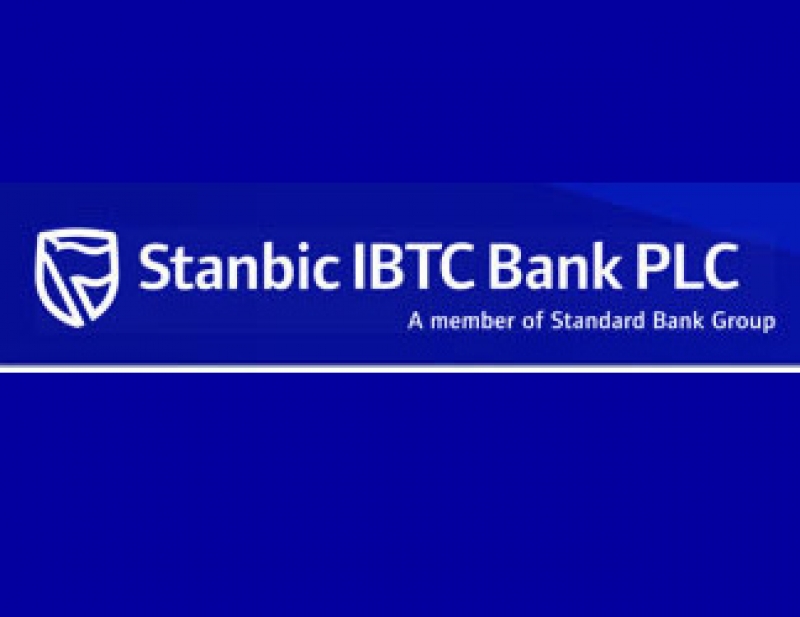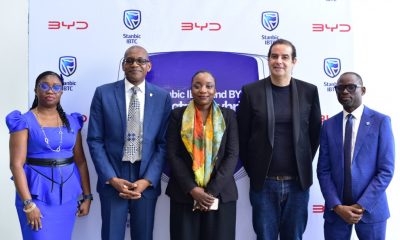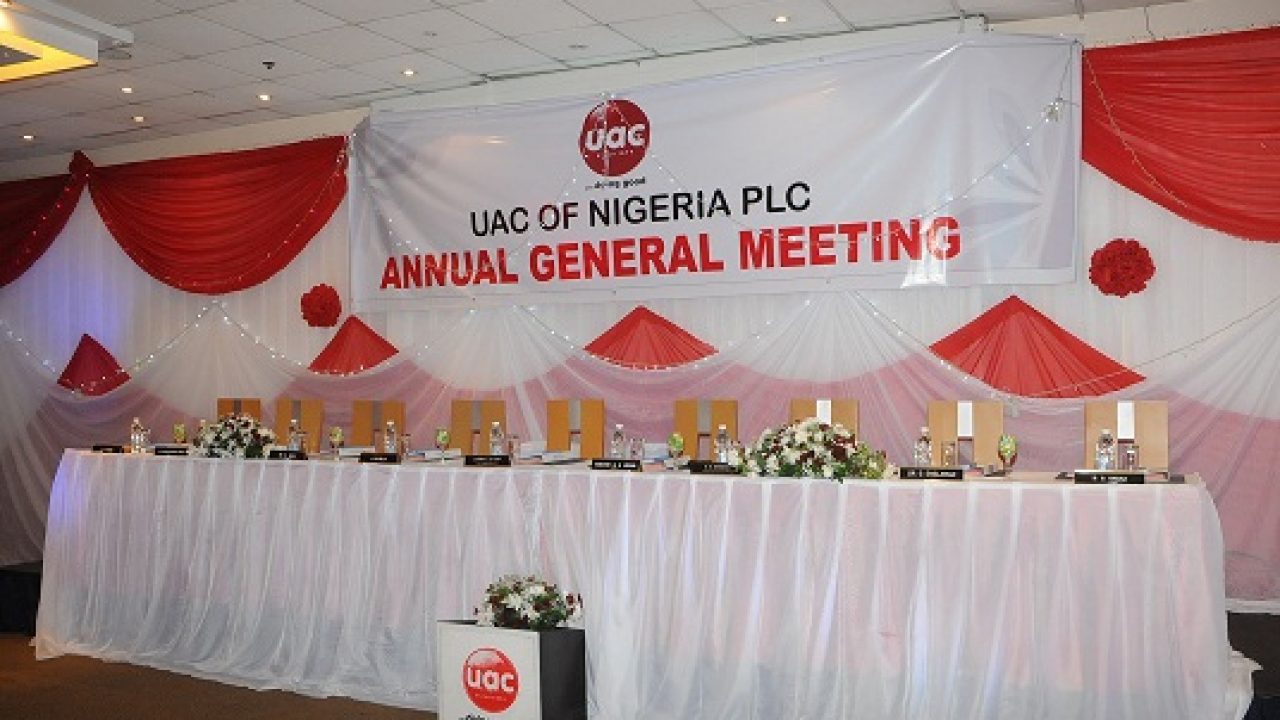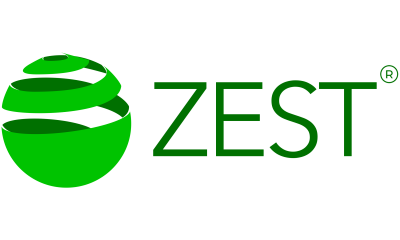Banking
Digitization, Fintech as Panacea to Financial Inclusion—Stanbic IBTC

By Dipo Olowookere
One of the compelling aspirations of the Federal Government and the Central Bank of Nigeria (CBN) in the last two years has been to ramp up the numbers for financial inclusion in the country.
To this end, Nigeria’s apex bank, alongside other regulators in the financial services sector, including the National Pension Commission (PENCOM), has vigorously pursued the agenda of financial inclusion through various initiatives with a clear intent to bring millions of Nigerians, especially those in the informal sector and the unbanked, into the banked population.
This ambition, which is not restricted to banking alone, cuts across the full continuum of financial services, ranging from bank accounts, insurance subscription, retirement savings account, and fund investments, among others.
Perhaps the bedrock and main enabler of recent improvements witnessed in the financial services sector in areas like customer experience and service quality, speed to market of financial products and services and quick turnaround time in processing financial transactions stems primarily from advancements in modern information and communications technology, investment in its adoption and integration.
Leading financial services providers in the country, especially the Deposit Money Banks (DMOs) have all embraced innovations made available and possible by constantly evolving technology, in a bid to remain relevant, grow market share, expand footprints, do business profitably, stay ahead of the competition, and deliver more value to their customers and other critical stakeholders.
The major setback many experts have however cited as the bane of financial inclusion in Nigeria is the apparent distrust for financial services institutions and low literacy levels among Nigerians.
Credit must be given to the Federal Ministry of Finance and the Central Bank of Nigeria for measures they have put in place to raise the bar on financial literacy in the country as a panacea to driving financial inclusion, although a lot more work is required if the low public confidence and trust in the financial services sector is to receive any boost.
Executive Director, Personal and Business Banking, Stanbic IBTC Bank Plc, Mr Babatunde Macaulay, said that financial inclusion is one issue that CBN is driving passionately and Stanbic IBTC and other banks are part of that drive.
The question therefore is what must be done to effectively remove this barrier and disincentive to financial inclusion in Nigeria. One determinant that readily comes to mind is innovation and technology.
This perhaps must be why many commercial banks have been remodelling their operational strategies to deemphasize focus on increasing footprint via branch network expansion and steadily moving towards digitization and mobile solutions.
Original Equipment Manufacturers like Hewlett Packard or HP, Dell, Samsung and other makers of computing devices had predicted many years ago that the future of computing is mobile, hence the unprecedented revolution in the handheld device and mobile phone industry.
Chief Executive of Stanbic IBTC Bank Plc, Dr Demola Sogunle, had also attested that the ongoing digital transformation and revolution which the financial services sector is currently witnessing has only just begun.
The bank chief made this pronouncement during the official commissioning of the bank’s first self-service fully digital branch at the Maryland Mall in Lagos, in December last year. Almost exactly a year before that, precisely in November, 2015, Stanbic IBTC, in furtherance of ongoing digitization drive aimed at serving its customers better through excellent and innovative products and services, launched Africa’s very first personal teller machine (PTM), an interactive automated teller machine that enables its customers perform full banking activities.
The Personal Teller Machine is a device that offers customers the benefits of both self-service video banking and the branch teller experience combined in one solution. The PTM combines video banking collaboration and remote transaction processing banking technology embedded within the machine to give customers the choice of self-service or connecting with a remote teller in a highly personalized, two-way audio/video interaction. The machine’s interactive nature helps to close the ‘intimacy gap’ that is currently missing on the conventional automated teller machine (ATM). So if the objective of the bank for deploying the PTM was to further enrich customers’ banking experience by allowing them perform banking operations such as account opening, cash deposit and withdrawal, cheque deposit and other general account enquiries like account balance, loan enquiries, card related services, among other functions, without having to use their debit cards, then this purpose has ultimately being achieved. The total value of transactions done on Stanbic IBTC Bank PTM as at March 2017 was N34,264,500; with total deposit valued at N8,805,500, withdrawal valued at N25,459,000 in 1,985 sessions.
These numbers may suggest that the PTM has been a successful innovative solution deployed by Stanbic IBTC to serve its customers. So in spite of the enormous potential and benefits of the PTM, Stanbic IBTC went a step further to explore other alternative solutions to deliver service to the retail end of the market and this was mobile.
Mobile is believed to present a huge opportunity for Nigerian banks to drive financial inclusion, especially considering the high mobile devices penetration rate in the country. The recent trend by banks of reengineering and re-launching their mobile banking application offerings clearly gives credence to this assertion.
Macaulay said Stanbic IBTC was one of the very first financial institutions in Nigeria to revamp its mobile app which it launched into the market in November 2016 to boost customer service delivery and user experience. The app tagged ‘Appyness’ placed emphasis on seamless user experience, aesthetics and convenience. He said one unique feature of Stanbic IBTC Mobile App is that it offers banking, asset management, pension and mobile money services on a single infrastructure.
“The new app makes it possible for customers to see their bank accounts, mobile wallet, pension and mutual fund investments in one place, giving them total control of their money and investments. Apart from being fast and dependable, the new app is feature-rich, with capacity to conduct funds transfer, bills payment, airtime purchase, cheque services, mobile money and lifestyle services. Its other features, unavailable in most other banking apps, include monitoring pension accounts, checking mutual funds account, redeeming and making additional investments in mutual funds. The Stanbic IBTC Mobile App is the only mobile platform that offers a convergence of financial services,” Macaulay stated.
The ED said Stanbic IBTC believes technology is the best way to go. He said that across the banking industry, the number of transactions in the branches has reduced significantly whereas offsite transactions, whether via the internet, mobile, ATMs, POS, have increased and continue to grow.
This position was reaffirmed by the Head, Mobile and Acquiring Channels, Stanbic IBTC Bank, Francis Nwoboshi, while speaking at the 2016 Annual Brands & Marketing Conference of the Brand Journalists’ Association of Nigeria (BJAN), in Lagos themed ‘Mobile Money in Nigeria – Challenges, Opportunities, and Threats’.
Nwoboshi said the bank believes that Nigeria’s socio-economic demography presents a considerable opportunity for innovative mobile propositions that can deepen financial access in the country.
Technology is converging at an exigent speed while disruptive technology and digital communications is impacting so much on many traditional business models, including financial services. Nigerian banks and other financial services providers must have realized that these are very exciting times which require new thinking and approach or better put, innovation.
A recent Accenture Consulting research on the future of financial technology (fintech) and banking revealed that the digital revolution in financial services is under way, but how this would impact current banking players is unclear. It warned that digital disruption has the potential to shrink the role and relevance of today’s banks, but could all together help them create better, faster, cheaper services that make them an even more essential part of everyday life for institutions and individuals. As more Nigerian banks make a model shift towards digitization and mobile, it is expected that this would positively impact the nation’s desire to attain widespread financial inclusiveness and promote transition to mobile banking solutions, e-Government solutions, cashless policy and drive growth verticals for business-to-business (B2B) mobile services.
Banking
Public Offer: Sterling Holdco Allots 13.812 billion Shares to 18,276 Shareholders

By Aduragbemi Omiyale
Sterling Financial Holdings Company Plc has allotted shares from its public offer of 2025 to investors with valid applications.
The allotment follows the earlier receipt of final approval from the Central Bank of Nigeria (CBN) and the recent clearance by the Securities and Exchange Commission (SEC).
In September 2025, the financial institution offered for sale about 12,581,000,000 ordinary shares of 50 kobo each at N7.00 per share in public offer.
However, the exercise received wide participation from the investing public, with the company getting 18,280 applications for 16,839,524,401 ordinary shares valued at approximately N117.88 billion.
Following a thorough verification process, valid applications were received from 18,276 shareholders for a total of 13,812,239,000 ordinary shares, representing a subscription level of 109.79 per cent and reflecting sustained confidence in Sterling Holdco’s strategic direction, governance, and long-term growth prospects.
The firm approached the capital market for additional funds for the recapitalisation of its two flagship subsidiaries, Sterling Bank and The Alternative Bank.
The capital injection will support the commencement of full operations and contribute to the group’s revenue diversification objectives.
In line with the guidelines set out in the offer prospectus, Sterling Holdco confirmed that all valid applications will be allotted in full. Every investor who complied with the terms of the offer will receive all the shares for which they applied.
A very small number of applications were not processed or were partially rejected due to non-compliance with the offer terms, including duplicate payments and failure to meet the minimum subscription requirement of 1,000 units or its multiples, as stipulated in the offer documents.
The group ensures a seamless post-offer process, with refunds for excess or rejected applications, along with applicable interest, to be remitted via Real Time Gross Settlement or NIBSS Electronic Funds Transfer directly to the bank accounts detailed in the application forms.
Simultaneously, the electronic allotment of shares has be credited to successful shareholders’ accounts with the Central Securities Clearing System (CSCS) on February 17, and for applicants who do not currently have CSCS accounts, their allotted shares will be temporarily held in a registrar-managed pool account pending the submission of their completed account opening documentation to Pace Registrars Limited, after which the shares will be transferred to their personal CSCS accounts.
Banking
CBN Governor Seeks Coordinated Digital Payment Reforms

By Modupe Gbadeyanka
To drive inclusive growth, strengthen financial stability, and deepen global financial integration across developing economies, there must be coordinated reforms in digital cross-border payments.
This was the submission of the Governor of the Central Bank of Nigeria (CBN), Mr Olayemi Cardoso, at the G‑24 Technical Group Meetings in Abuja on Thursday, February 19, 2026.
According to him, high remittance costs, settlement delays, fragmented systems, and heavy compliance burdens still limit the participation of households and Micro, Small and Medium Enterprises (MSMEs) in global trade.
The central banker emphasised that efficient payment systems are essential for economic inclusion, highlighting that global remittance corridors still incur average costs above 6 per cent, with settlement delays of several days, excluding millions from modern economic activity.
Mr Cardoso cautioned that while digital payments present significant opportunities, they also carry risks such as currency substitution, weakened monetary transmission, increased FX volatility, capital-flow pressures, and regulatory fragmentation.
The G-24 TGM 2026, themed Mobilising finance for sustainable, inclusive, and job-rich transformation, convened global financial stakeholders to advance the modernisation of finance in support of emerging and developing economies.
The CBN chief reaffirmed Nigeria’s commitment to working with G-24 members, the IMF, the World Bank Group, and other partners to build a more inclusive, resilient, and development-oriented global financial architecture.
“We have strengthened our AML/CFT frameworks in line with FATF guidelines, requiring strict dual-screening of cross-border transactions to mitigate risks.
“To deepen regional integration, the CBN introduced simplified KYC/AML requirements for low-value cross-border transactions to encourage broader participation in PAPSS, easing processes for Nigerian SMEs and enabling faster intra-African trade payments.
“We have also embraced fintech innovation through our Regulatory Sandbox, allowing payment-focused fintechs to test secure, instant cross-border solutions under close CBN supervision,” he disclosed.

Banking
Unity Bank, Providus Bank Merger Awaits Final Court Approval

By Modupe Gbadeyanka
The merger and business combination between Unity Bank Plc and Providus Bank Limited remains firmly on course, a statement from one of the parties disclosed.
According to Unity Bank, there is no iota of truth in reports in certain sections of the media suggesting that the merger process had stalled, as the transaction remains firmly on track.
It was disclosed that the necessary regulatory steps have been completed, but only a few other steps to finalise the transaction, especially the final court sanction.
There had been speculations that both lenders may not meet the new minimum capital requirement of the Central Bank of Nigeria (CBN) before the March 31, 2026, deadline.
However, it was noted that the combined capital base of Unity Bank and Providus Bank exceeds N200 billion, which is the minimum requirement to retain a national banking licence under the CBN’s recapitalisation framework.
When completed, the Unity-Providus merger is expected to deliver a stronger, more competitive, and customer-centric financial institution — one with the scale, innovation, and reach to redefine the retail and SME banking landscape in Nigeria.
“The merger with Providus Bank significantly enhances our capital base, operational capacity, and strategic positioning.
“We are confident that the combined institution will be better equipped to support economic growth and deliver innovative financial solutions across Nigeria,” the chief executive of Unity Bank, Mr Ebenezer Kolawole, stated.
Recall that a few months ago, shareholders authorised the merger between the two entities at Court-Ordered Meetings. They also adopted the scheme of merger at their respective Extraordinary General Meetings (EGMs) in September 2025,
The central bank also backed the merger, with a pivotal financial accommodation to support the transaction. The merger also received a further boost with a “no objection” nod from the Securities and Exchange Commission (SEC).
The regulatory approvals form part of broader efforts to strengthen the resilience of Nigeria’s banking system, reinforce capital adequacy across the sector, and mitigate potential systemic risks.
The development positions the combined entity among the 21 banks that have satisfied the apex bank’s new capital threshold for national banking operations.
-

 Feature/OPED6 years ago
Feature/OPED6 years agoDavos was Different this year
-
Travel/Tourism10 years ago
Lagos Seals Western Lodge Hotel In Ikorodu
-

 Showbiz3 years ago
Showbiz3 years agoEstranged Lover Releases Videos of Empress Njamah Bathing
-

 Banking8 years ago
Banking8 years agoSort Codes of GTBank Branches in Nigeria
-

 Economy3 years ago
Economy3 years agoSubsidy Removal: CNG at N130 Per Litre Cheaper Than Petrol—IPMAN
-

 Banking3 years ago
Banking3 years agoSort Codes of UBA Branches in Nigeria
-

 Banking3 years ago
Banking3 years agoFirst Bank Announces Planned Downtime
-

 Sports3 years ago
Sports3 years agoHighest Paid Nigerian Footballer – How Much Do Nigerian Footballers Earn























